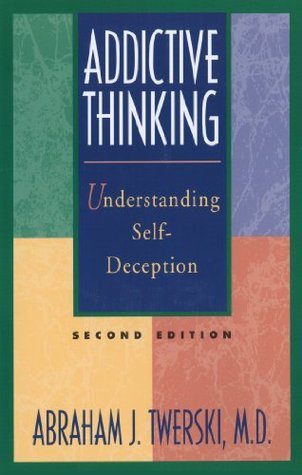More on this book
Community
Kindle Notes & Highlights
The person may feel stigmatized at being labeled an alcoholic or addict. The person may consider addiction to indicate a personality weakness or moral degeneracy. The person may think not being able to use alcohol or other drugs again is frightening. The person may not accept the concept of being powerless and not in control.
A fairly reliable rule of thumb is that when people offer more than one reason for doing something, they are probably rationalizing. Usually the true reason for any action is a single one.
Because rationalizations sound reasonable, they are very deceptive, and anyone can get taken in by them.
As painful as romantic rejections may be, people do get over them eventually.
the unconscious mind can produce pain, real pain, that hurts as much as a fractured leg.
“You cannot change anyone but yourself. Let’s work on bringing about the healthy changes in yourself that you can make.”
Some addicts spend countless hours rehashing the past and tend to use such information to indulge in self-pity and to justify their substance use.
“Even if you are what your parents made you, if you stay that way, it’s your own darn fault. We’re not going to undo the past. Let’s focus on making the necessary changes to improve your functioning.”
As one layer of denial, rationalization, and projection is peeled away, another is discovered underneath. The progressive elimination of these distortions of reality allows for improvement in recovery.
With abstinence, an addicted person must face reality without the escape that substances offer.
Once the addiction is well under way, the chemically confused mind can generate a lot of conflict. Overwhelming conflict is not responsible for addiction. Rather, it is the addict’s distorted perception that makes reality unacceptable.
When the layers of veneer are peeled off, an addict has an extremely low self-esteem. If the distorted self-concept is not corrected, the addictive thinker will find it difficult or impossible to maintain recovery and could develop psychosis, neurosis, or a substitute addiction.
The low self-esteem that comes with the use of substances is of a different kind—it is not related to a misconception about reality. There is nothing elevating about forgetting what happened yesterday, having a hangover, being a public spectacle, or waking up in jail. These are legitimate reasons why addicts might develop low self-esteem.
Many addicts seek escape in substances because they feel they cannot cope.
addictive thinkers need to become aware of what is already there. They invariably have the ability to cope with conflicts once they become aware that they have the skills they need.
In dealing with addicts, we must be alert to “catch” them doing something right and commend them for it.
to the addict, this misconception is reality.
The addicted person is likely to think in extremes, with little understanding that there is flexibility in resolution of problems.
It is not clear why other options and intermediate possibilities between extremes do not occur to an addictive thinker.
a sunburn is apparent to everyone who can see, people’s emotional sensitivities are not. We may therefore fail to understand an intense reaction if we are not aware of a person’s circumstances.
alcohol and other drugs are emotional anesthetics as they seek relief from feelings of distress and discomfort.
Many addicts are emotionally hypersensitive and are likely to have more intense emotions than nonaddicts.
Many addicts are loners. On the surface, they may seem to be antisocial and enjoy solitude, but that isn’t necessarily true.
The loner doesn’t really enjoy isolation but sees it as the lesser of two evils. Mingling with people exposes the addict to the possibility of rejection. While rejection wouldn’t be pleasant for anyone, to the addict it is devastating.
Many addicted people are unable to see good in good happenings. Addictive thinkers seem burdened by a morbid feeling of being jinxed.
building to the verge of success and then sabotaging themselves.
There may be no telltale signs that beneath this superficial happiness, the recovering person is thinking, I can’t make it. Sometimes this nagging anticipation becomes so unbearable that the addict thinks, Oh, what the hell, I might as well get it over with, and then precipitates the failure.
Manipulation may start as a defensive maneuver to explain away the use of alcohol and other drugs, or to cover up problems, or to create situations that will facilitate drinking or using.
Addicts may indeed feel genuine remorse, but often they feel not guilt but shame. There is a big difference.
A person feeling shame doesn’t even try, thinking, I cannot change my substance. If I’m made up of inferior material, there is no reason for me to make any effort to change myself. It would be an act of futility. Guilt can lead to corrective action. Shame leads to resignation and despair.
Helplessness and dependency can generate feelings of inferiority.
Because addictive behavior often results in improper, irresponsible, and even immoral actions, there is ample reason for the addict to develop much guilt. Instead, the addict develops profound shame.
Remorse in the addict is as common as dandelions in the spring. The addict’s tears can be heartrending. Any listener unaware of addictive thinking would swear that this person will never again touch another drop of liquor or take another drug.


